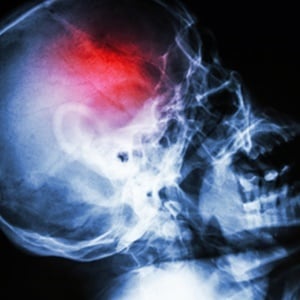
Suffering a serious traumatic brain injury can be a permanently disabling experience, but new research shows that obesity compounds the health problems survivors face in the years after their accident.
Study findings
"Achieving and maintaining a healthy diet and engaging in regular physical activity following a traumatic brain injury (TBI) are critical goals for recovery," said lead researcher Laura Dreer, from the University of Alabama at Birmingham, and her colleagues.
The study findings "highlight the potential importance of surveillance, prevention and management of weight and related health conditions during the years" after a moderate to severe brain injury, the investigators said.
Right after a serious brain injury, patients may lose weight due to an increased metabolic rate and other immediate physical effects of the injury including coma, the researchers explained.
But in the years following the injury, weight gain is common because of medications, changes in thinking or behavioural changes, physical limitations, and lack of transportation.
In the study, the researchers looked at nearly 7 300 TBI patients, average age 46, who underwent inpatient rehabilitation. Their body weight was assessed between one to 25 years after their injury. At the most recent follow-up, 23% were obese, 36% were overweight, 39% were normal weight, and 3% were underweight.
Health risks
Overweight and obesity were strongly associated with several chronic health conditions, including high blood pressure, heart failure and diabetes, though the study did not prove a cause-and-effect relationship. Overweight and obese patients also rated themselves as having poorer general health. According to various reports, South Africa had the highest obesity rates in Sub-Saharan Africa. Around 42% of South Africans are overweight or obese. The majority of the overweight or obese population belongs to the female population group.
The researchers also discovered that the frequency of seizures – a common problem among traumatic brain injury survivors – was linked with body weight and overall health.
The study was published in the Journal of Head Trauma Rehabilitation.
"Lifestyle and health behaviours related to weight gain will need to be a component of any proactive approach to managing TBI as a chronic health condition," Dreer and her colleagues concluded in a journal news release.
Image credit: iStock




 Publications
Publications
 Partners
Partners














